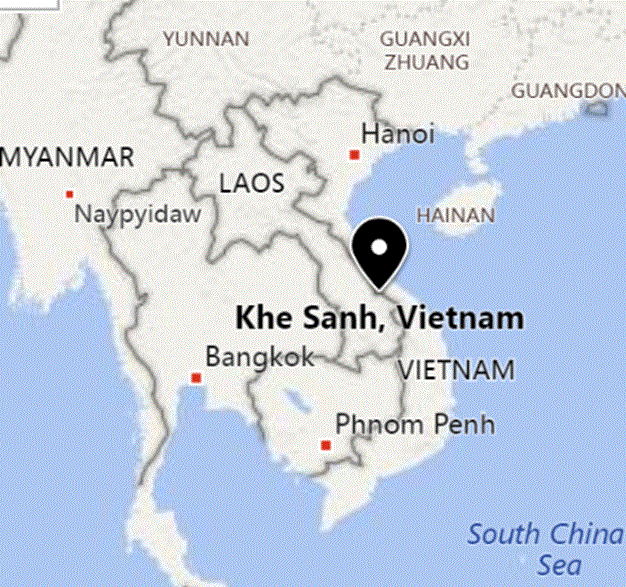Nuclear Weapons 358 - The U.S. Was Considering The Use Of Nuclear Weapons During The Vietnam War
For all the threats of nuclear war of the decades since the end of WW II in 1945, the only time that nuclear weapons have been used in a conflict was the two that were dropped on Japan to end their participation in World War II. We know that there have been generals and even presidents who talked about the possible use of such weapons since WW II. For instance, the Cuban Missile Crisis of 1963 could easily have escalated into nuclear war between the U.S. and Russia. It has now been revealed by recently released declassified documents that the U.S. was considering using nuclear weapons in Vietnam.
One of the most intense battles in Vietnam was at Khe Sahn. This battle raged from January to July of 1968 around a U.S. base in the Khe Sanh area of northwestern Quảng Trị Province, Republic of Vietnam. Two regiments of U.S. Marines supported by elements of the U.S. Army and the U.S. Air Force and a small contingent of South Vietnamese Army troops were up against three division sized elements of the North Vietnamese Army. Over a hundred thousand tons of bombs and over a hundred and fifty thousand artillery rounds were fired in defending the U.S. base. An overland relief expedition managed to break through the N.V. forces and reach the base in March. After the successful battle to save the base, it was abandoned shortly after the end of the battle.
Before the battle of Khe Sahn, President Johnson had told his commanders in charge of the Vietnam war that he did not want another embarrassing defeat there.
General William Westmoreland, in charge of the U.S. forces in Vietnam, prepared secret plans to move nuclear weapons to Vietnam just in case the U.S. was losing the battle at Khe Sahn. He organized a meeting in Okinawa to refine the plan which was called “Fractured Jaw. It was to be activated in February as the battle at Khe Sahn was heating up. Westmoreland notified the commander of the U.S. Pacific Fleet that he intended to carry out Fractured Jaw.
The same day that Westmoreland notified the Pacific Fleet commander of Fractured Jaw, Walter W. Rostow, the national security advisor to the President Johnson, notified President Johnson of the existence of Fractured Jaw and Westmoreland’s intentions to carry it out. President Johnson was extremely upset by the news and sent word to the Pacific commander to halt work on the project. Among other things, President Johnson was afraid that the use of nuclear weapons might prompt China to enter the war on the side of N.V. as they had entered the Korean War on the side of the North Koreans.
Two days after President Johnson had been notified of Fractured Jaw, the commander of the U.S. Pacific Fleet ordered Westmoreland to shut down all work on the plan immediately. Westmoreland was instructed to place all planning materials under “air tight” security.
The Vietnam War was a great mistake of U.S. foreign policy. Fifty thousand U.S. troops died in the fight and the U.S. was ultimately driven out of Vietnam. If we had used nuclear weapons the outcome may have been much worse.
